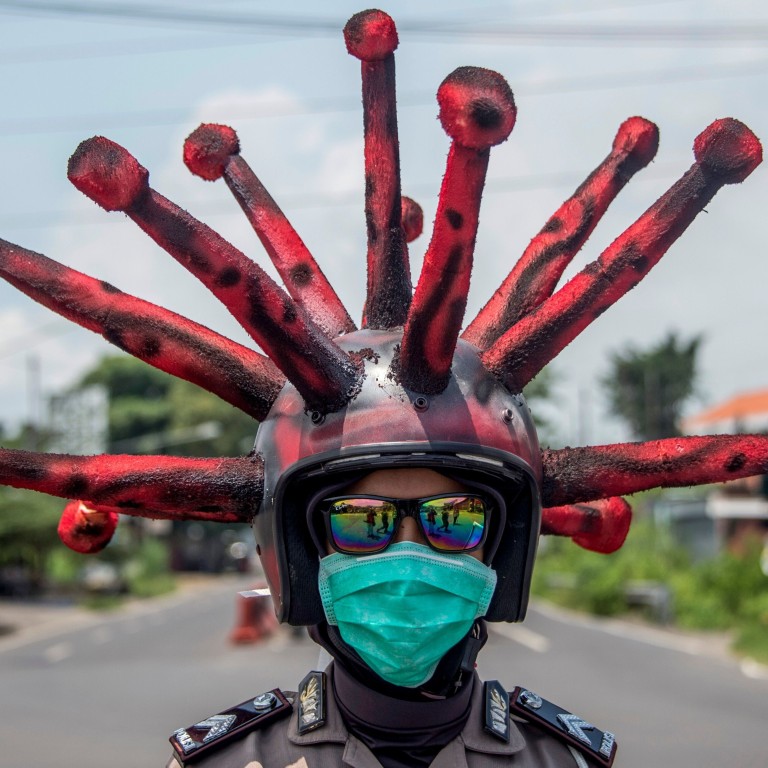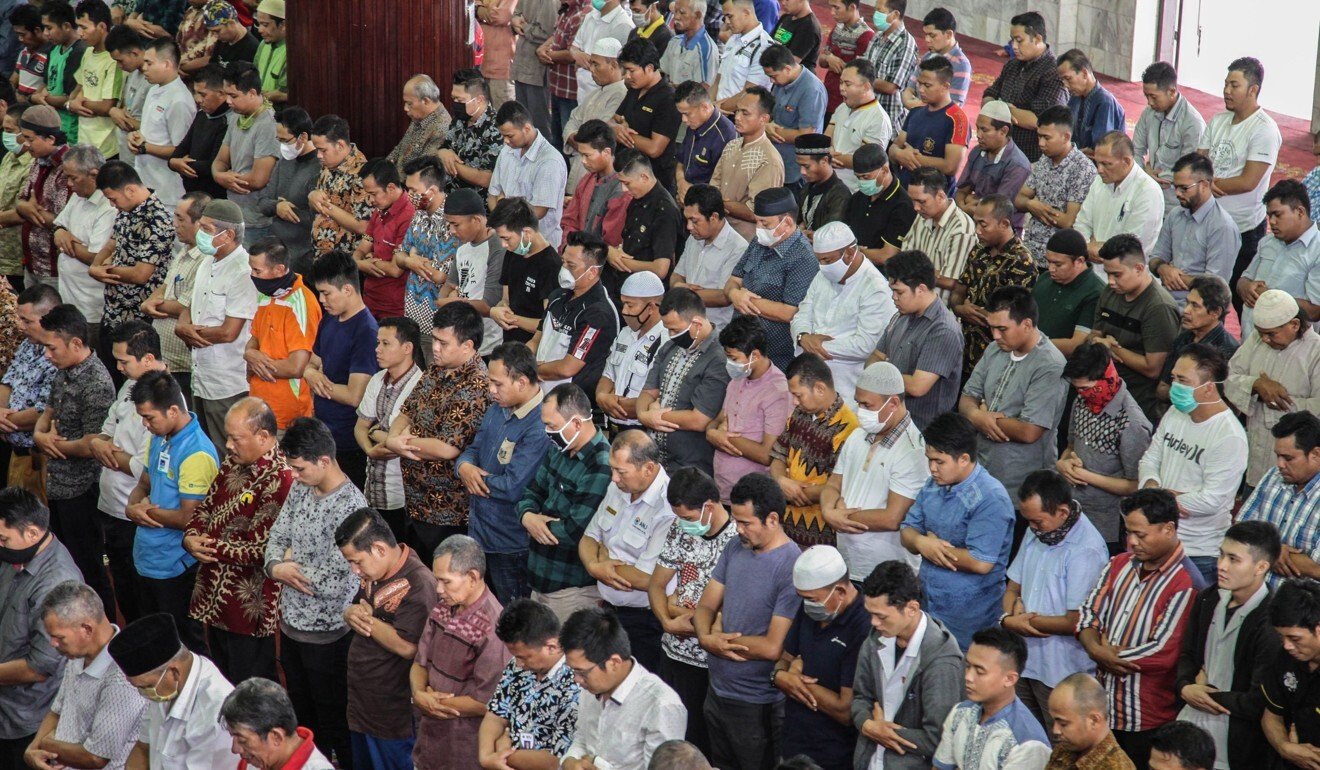
Coronavirus: Indonesia’s Widodo allows travel after Ramadan, raising fears infection will spread
- The president has decided not to ban the usual surge in travel towards the end of the Muslim fasting month
- Indonesia has reported 196 new cases, its biggest daily increase, as its death toll rose to 181 – the highest in Asia outside China
For Indonesia, which has a population of 270 million, the migration raises the stakes for a contagion that has seen 1,986 confirmed cases since the country reported its first case on March 2.
Widodo’s decision came as Indonesia reported its biggest daily spike in infections, with 196 new cases. The pandemic has killed 181 people there, surpassing South Korea’s total of 174 to become the highest in Asia after China.
Coronavirus: Indonesia’s cases surge by 149 amid confusion over transport restrictions
The president has resisted calls from public health experts and provincial leaders to take tougher measures, including a lockdown, to stem the disease’s spread.
He instead declared a state of emergency on Tuesday and called for stricter social distancing, promising US$1.5 billion in social assistance and subsidies for low-income workers. Widodo said he would not ban mudik, the journey home for the Eid ul-Fitr holiday after Ramadan, but urged people to stay in the capital where they could get social assistance.
Widodo also warned the country’s provinces not to make their own rules and follow the policies set by the central government, a move analysts say hampers efforts to deal with the virus.
“This is confusing the people. The government is not speaking in one voice,” said Muhammad Habib Abiyan Dzakwan, a researcher from the Centre for Strategic and International Studies’s (CSIS) disaster management research unit.

Iwan Ariawan from the University of Indonesia’s Faculty of Public Health described Widodo’s current measures as a “moderate intervention”.
According to a report he co-authored, Iwan said, the disease could kill close to 48,000 people across the country – but in the worst-case scenario, with no restriction on movement, there could be up to 240,000 deaths.
“We hope there will not be as many deaths as that,” he said. “The government needs to carry out more intensive interventions.”
Habib from CSIS said Widodo’s appeal would not be sufficient to stop people from making the exodus.
“A segment of society will move for sure unless the government backs up the call by raising the price [of public transport], provides incentives for residents to remain in Jakarta, reduces the frequency of public transport and imposes a health certificate requirement for them to travel,” he said.
Coronavirus: Indonesia’s migrant workers urged not to return home as Widodo declares state of emergency
The influential Indonesian Ulema Council (MUI) on Friday said mudik was haram, or forbidden, as it could spread the “dangerous virus”, a move that could hold sway in a country where about 90 per cent of the population are Muslims.
“This is in keeping with the guidance shown by his holiness Prophet Mohammed when he forbade people to enter an epidemic zone as well as leave it,” said MUI secretary general Anwar Abbas.
Indonesia’s vice-president Ma’ruf Amin later the same day urged the MUI to issue a fatwa against mudik in the middle of an epidemic, according to local media.
For the past week, the governors of West and Central Java have been calling on migrant workers not to leave Jakarta and urging those working overseas not to return home, as they worry the exodus will hasten the spread of the coronavirus and overwhelm provincial medical facilities.
More than 100,000 people have returned to West Java in recent weeks, while some 218,000 have reached Central Java, driven by a combination of job losses and efforts to beat a rumoured travel ban.
Last year, 5.9 million people travelled to Central Java after Ramadan, with governor Ganjar Pranowo saying he hoped migrant workers in Jakarta would accept the aid extended by the government. “The more people who accept, the fewer who will return,” he said.
Ganjar also said there should be a quota on the number of people travelling on public transport so their numbers were easier to control.
Ridwan Kamil, governor of West Java, said the number of Covid-19 infections was “many times higher” than current data indicated and the disease had spread “everywhere.”
In a local media report, he said this could be seen from the 15,000 people who had undergone rapid testing in his province, with 677 positive results. “Therefore the conclusion is that the more we carry out testing, the more we will know the virus has spread everywhere.”
A coronavirus choice for Indonesian nurses: used hazmat suit or raincoat
Iwan from the University of Indonesia warned that if migrant workers spread the virus to Indonesia’s villages, local hospitals would be overwhelmed as they lacked sufficient ventilators or the ability to provide intensive care treatment. As a result, he said, the death toll would rise sharply, just as it had in Italy.
CSIS researcher Habib said he believed Widodo was trying to avoid following in India’s footsteps, where a three-week lockdown upended supply chains and left millions of migrant workers suddenly jobless and struggling to get home to their villages on foot.
“The main concern of the government is on how to provide the most basic needs of society, from budget allocation to the appointment of people to distribute the needed logistics,” he said. “Without proper preparation, an India scenario could take place in Indonesia.”
Coordinating human development and culture minister Muhadjir Effendy on Thursday said “hundreds of thousands” of Indonesians working in Malaysia had lost their jobs due to Kuala Lumpur’s movement control order, which came into force on March 18, and called on them to remain in Malaysia for the time being.
There are currently 3.3 million Indonesians working in Malaysia, according to Indonesia’s immigration department.

